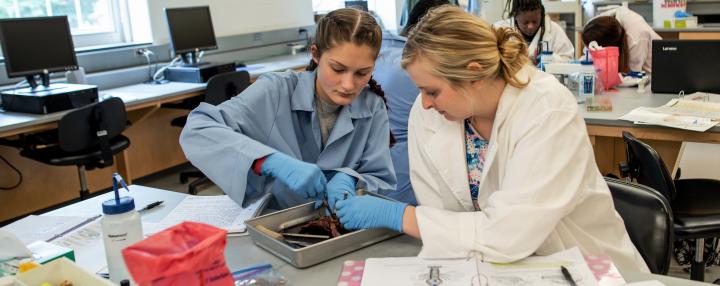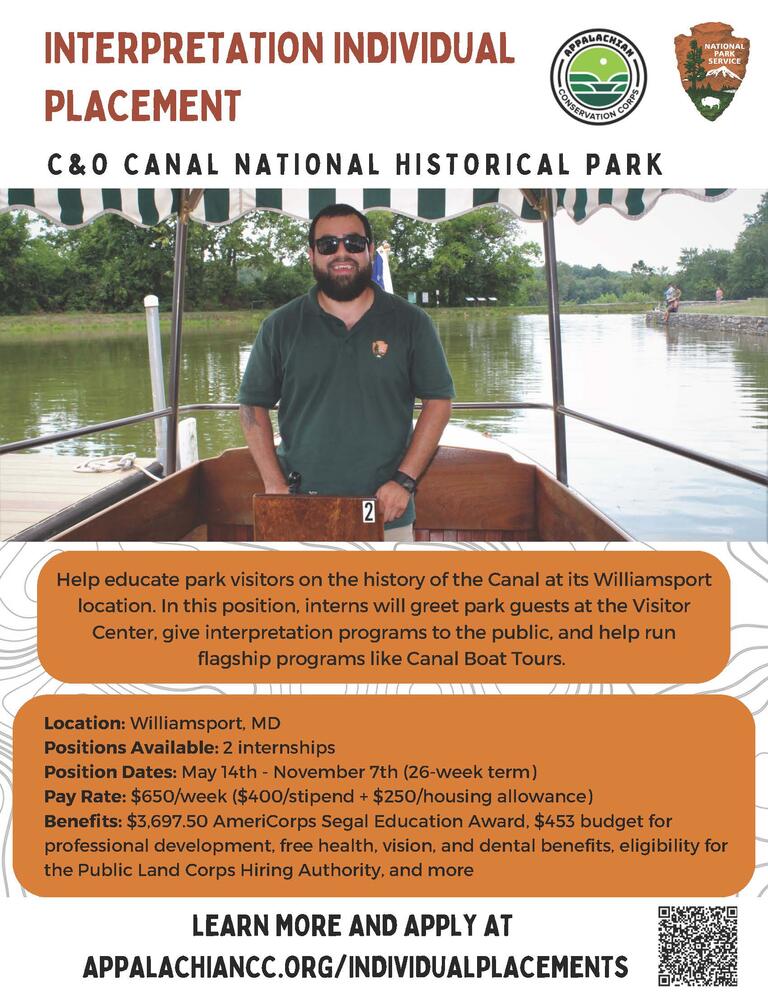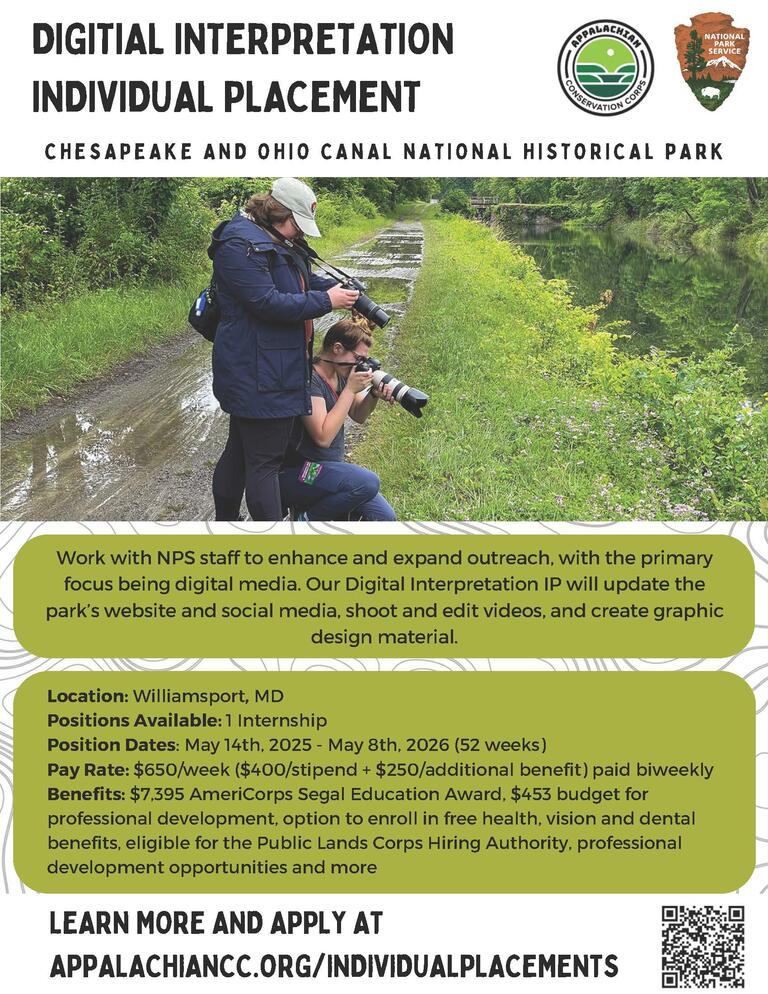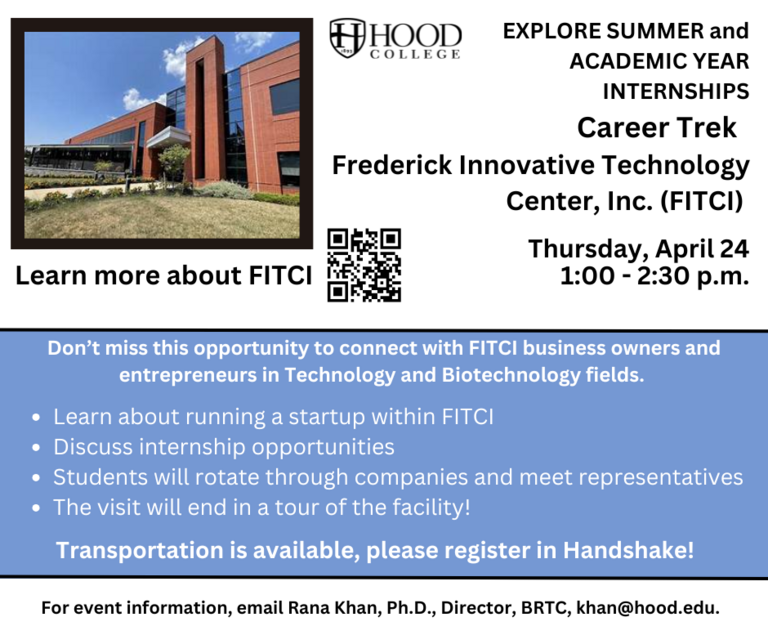
Student Opportunities
Jobs and Internships in Biology
Genetic hybridization of Tansy (Tanacetum vulgare L.) populations
Tansy is a non-native invasive weed. Its flowers are bright yellow discs up to a half an inch in diameter. The flowers look somewhat like chrysanthemums that are missing their white petals. We are working on developing a genetic control method to manage weed populations. Since the plant is self-incompatible, we plan to cross diverse collections of tansy to identify compatible genotypes for future tissue culture/plant transformation experiments.
Objective:
To cross hybridize diverse tansy collections necessary to assess genotype compatibility and evaluate fertility.
Procedure and approximate time needed for handling:
- Planting and maintaining tansy plants in greenhouses and growth chambers, this management requires ~2 hours/day for 3 days/week for 3-4 months
- After flowering, physically crossing different combinations of genotypes, 2 times/week for several weeks (~2 hours/day and 3 days/week)
- Seed viability testing – seeds will be collected from crossed lines and tested for viability and fertilization efficiency (3 hours /day and 3 days a week).
Project duration: ~6 months (depending on research interest this could be expanded)
Expected outcomes: Hands on research at a USDA-ARS laboratory, co-authorship on applicable manuscripts, and scientific training and career development.
Requirements: 18+ years of age. The student will get basic technical trainings in the lab to perform the required tasks safely and on time.
Please contact Dr. Matthew Tancos at matthew.tancos@usda.gov for more information.
We are currently recruiting for a variety of positions in the WilsonLab to study the ecology of freshwater harmful algal blooms.
Current job openings
- Research Assistant Technician (~$33k-$58k/yr)-https://www.auemployment.com/postings/49829
- Postdoctoral Researcher (~$55k/yr; up to 4 yrs funding available) -https://www.auemployment.com/postings/45964
- Graduate Students (PhD $35k/yr and MS $30/yr) - https://www.wilsonlab.com/wp-content/uploads/2023/12/student_ad.pdf
For any questions about these opportunities, please contact Alan Wilson at wilson@auburn.edu
The University: Auburn University is an R1 land-grant institution organized into twelve academic colleges and schools and ranked 40th among public universities in the U.S. News and World 2021 Report. For 2020, 24,505 undergraduates as well as 6,232 graduate and professional students were enrolled. The University is nationally recognized for its academic excellence, commitments to community engagement, positive work environment, flourishing student life programs, and beautiful campus. To learn more about the University, please visit: http://www.auburn.edu/
The Community: Auburn is recognized as one of America’s best small towns with a moderate climate and easy access to major cities, beaches, and mountains. The city is situated along the rapidly developing I-85 Atlanta, Georgia, and Montgomery, Alabama, corridor. The combined Auburn-Opelika Metropolitan Statistical Area boasts a growing population of over >60,000. The City of Auburn grew 43% in the past decade and is known for an excellent public school system and a local medical center acknowledged as among the best in the region. The City of Auburn website has information on the community and services that can be accessed at: https://www.auburnalabama.org/
Fox Haven Learning Center uses its beautiful natural campus of woodlands, streams, farmland, orchard, barn, and dairy parlor for educational programs for adults and children. Fox Haven’s classes encompass a wide range of topics spanning foraging for wild edible foods, gardening, cultivating mushrooms, herb production, and cooking classes, to personal health. Fox Haven’s Learning Center proudly continues to provide the region’s first Fresh Herb Community Supported Agriculture (CSA) program. With pick-up locations and hands-on classes offered in Frederick, Baltimore, and D.C., we strive to engage and educate a broad audience on the uses of herbs.
Our primary opportunities for students to engage in an internship experience with us are working directly with the farm team and working with our program coordinator/marketing manager.
- Working on the farm might include tasks such as climate-smart bed/soil prep, planting, harvesting, maintenance, and compost management. The intern/volunteer can also facilitate any research projects that we have the capacity to host.
- Working with our program coordinator/marketing manager might include graphic design, social media content, marketing tasks, being present to ensure programs run smoothly, and doing outreach events.
Website: Fox Haven Organic Farm
The Bermuda Institute of Ocean Sciences (ASU BIOS), a unit of the Julie Ann Wrigley Global Futures Laboratory at Arizona State University, has received funding from the National Science Foundation (Award number OCE-2349130), for our Research Experiences for Undergraduates (REU)) Program to support internships for undergraduate student research at ASU BIOS in Fall 2025 (starts August 25 - ends November 14).
An REU internship at ASU BIOS is a great way to gain the practical experience necessary to embark on graduate studies or careers in the marine and ocean sciences.
Funding includes roundtrip air fare (from and to the U.S.) campus accommodation and all meals. Each successful REU applicant will also receive a competitive stipend.
This life-changing 12-week program provides participants with the opportunity to conduct intensive, hands-on research projects under the expert mentorship of BIOS scientists.
Applicants must meet the following criteria:
- Over 18 and enrolled in a program of undergraduate study immediately before and after the program dates
- U.S. citizen, national or permanent resident
Further information on the REU program at ASU BIOS can be found here.
Applications for the 2025 BIOS REU Program are now open, apply here.

Please submit a resume and cover letter via website, www.appalachiancc.org/individualplacements. Applications will be accepted until March 15th.

Please submit a resume and cover letter via website, www.appalachiancc.org/individualplacements. Applications will be accepted until March 15th.
Thurs., April 24, 1 - 2:30 p.m.
Are you a STEM student in biology, biochemistry, business, computer science or a related field? Don't miss this Career Trek to Frederick's most unique start-up scientific incubator. This is where innovation begins and launches new waves of technology and science!! Learn about internships and jobs, meet representatives from multiple companies, and tour the facility.
- Pre-registration is required. Register in Handshake!
https://hood.joinhandshake.com/edu/events/1740203
Transportation to and from campus is available to participating students.
For more information about this event, contact Rana Khan, Ph.D., Director of Hood College's, Bioscience Research and Training Center (BRTC) at khan@hood.edu.

Are you ready to say Hello?
Choose a Pathway
Information will vary based on program level. Select a path to find the information you're looking for!
